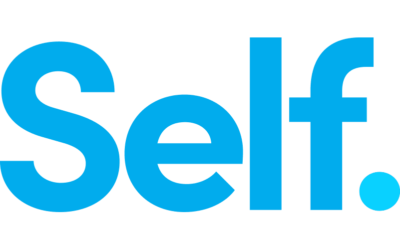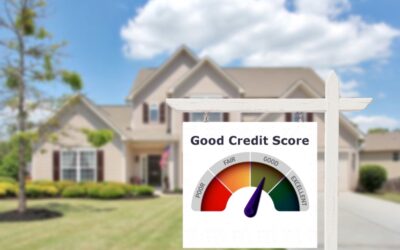FHA loans are a popular choice for many homebuyers, particularly those who may not qualify for a traditional mortgage. These loans are insured by the Federal Housing Administration (FHA), which helps protect lenders if a borrower defaults on their loan. However, many people have questions about FHA loans and how they work. In this blog post, we’ll answer some of the most frequently asked questions about FHA loans to help you better understand this type of mortgage.
Frequently Asked Questions:
What is an FHA loan? An FHA loan is a mortgage that the Federal Housing Administration insures. These loans are designed for borrowers who may not qualify for a conventional mortgage, such as first-time homebuyers or those with lower credit scores.
What are the qualifications for an FHA loan? To qualify for an FHA loan, you must have a credit score of at least 500 and a debt-to-income ratio of less than 43%. You’ll also need proof of income, employment, and residency.
How much can I borrow with an FHA loan? The amount you can borrow with an FHA loan will depend on your income, credit score, and the home’s value. Generally, the maximum loan amount is 96.5% of the home’s value.
What is the interest rate on an FHA loan? The interest rate on an FHA loan will depend on the lender and your credit score. However, FHA loans typically have a lower interest rate than conventional mortgages.
Is there a down payment required for an FHA loan? Yes, there is a down payment required for an FHA loan. The minimum down payment is 3.5% of the purchase price.
Are there any restrictions on the types of properties that can be purchased with an FHA loan? Yes, there are restrictions on the types of properties that can be purchased with an FHA loan. For example, the property must be a primary residence and meet specific safety and habitability standards.
Are there any restrictions on the types of properties that can be purchased with an FHA loan? Yes, there are restrictions on the types of properties that can be purchased with an FHA loan. For example, the property must be a primary residence and meet specific safety and habitability standards. Also, only single-family homes and specifically approved condos, townhomes, and manufactured homes are eligible for FHA financing.
Can I get an FHA loan with a low credit score? Yes, getting an FHA loan with a low credit score is possible. However, a score of 500 or higher is required to qualify for an FHA loan, and the higher your score, the better your chances of getting approved.
Can I use an FHA loan to purchase a rental property? No, FHA loans are intended for owner-occupied properties only. Therefore, they can not be used to buy a rental property.
Can I use an FHA loan to purchase a second home or vacation home? Yes, you can use an FHA loan to buy a second home or vacation home. However, you must occupy the property as your primary residence for at least 12 months before renting it out.
Are there any fees associated with an FHA loan? Yes, there are fees associated with an FHA loan. These include an upfront mortgage insurance premium (UFMIP), an annual mortgage insurance premium (MIP), and closing costs.
Can I refinance my FHA loan? Yes, you can refinance your FHA loan. You may be able to refinance to a lower interest rate or a shorter loan term.
How long does it take to get an FHA loan? The time it takes to get an FHA loan can vary depending on the lender and your individual situation. However, it typically takes between 30 and 60 days to get an FHA loan.
What is the difference between an FHA loan and a conventional loan? The main difference between an FHA loan and a conventional loan is that an FHA loan is insured by the Federal Housing Administration, while a conventional loan is not. This means that if a borrower defaults on an FHA loan, the lender is protected by the FHA’s insurance. Additionally, FHA loans typically require a lower down payment and have more lenient credit requirements than conventional loans.
Can I get an FHA loan if I have a bankruptcy or foreclosure in my credit history? Yes, getting an FHA loan is possible if you have a bankruptcy or foreclosure in your credit history, but there are certain waiting periods you must meet. For example, if you’ve had a bankruptcy, you’ll typically need to wait at least two years before you can qualify for an FHA loan.
Can I get an FHA loan if I have a low income? Yes, you can get an FHA loan if you have a low income. However, you’ll need to meet the FHA’s debt-to-income requirements, which means you’ll need to have a low debt-to-income ratio.
Can I get an FHA loan if I’m self-employed? Yes, you can get an FHA loan if you’re self-employed. However, to qualify, you’ll need to provide proof of income, such as tax returns, to the lender.
How much will I pay in mortgage insurance on an FHA loan? The amount you’ll pay in mortgage insurance on an FHA loan will depend on the size of your down payment.
FHA loans are an excellent option for many homebuyers, particularly those who may not qualify for a traditional mortgage. These loans are insured by the Federal Housing Administration, which helps to protect lenders in the event of a default. However, there are many questions that people have about FHA loans. We hope this blog post has answered some of the most frequently asked questions about FHA loans and has helped you better understand this type of mortgage. If you still have questions, it’s a good idea to speak with a loan officer like myself or a financial advisor to help you make the right choice. For questions and inquiries, please email me at jclarington@prmg.net or contact me in the comment area below.








0 Comments